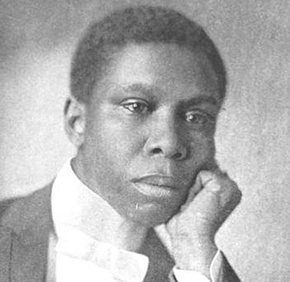A lover whom duty called over the wave,
With himself communed: "Will my love be true
If left to herself? Had I better not sue
Some friend to watch over her, good and grave?
But my friend might fail in my need," he said,
"And I return to find love dead.
Since friendships fade like the flow'rs of June,
I will leave her in charge of the stable moon."
Then he said to the moon: "O dear old moon,
Who for years and years from thy throne above
Hast nurtured and guarded young lovers and love,
My heart has but come to its waiting June,
And the promise time of the budding vine;
Oh, guard thee well this love of mine."
And he harked him then while all was still,
And the pale moon answered and said, 'I will.'
And he sailed in his ship o'er many seas,
And he wandered wide o'er strange far strands:
in isles of the south and in Orient lands,
Where pestilence lurks in the breath of the breeze.
But his star was high, so he braved the main,
And sailed him blithely home again;
And with joy he bended his footsteps soon
To learn of his love from the matron moon.
She sat as of yore, in her olden place,
Serene as death, in her silver chair.
A white rose gleamed in her whiter hair,
And the tint of a blush was on her face.
At sight of the youth she sadly bowed
And hid her face 'neath a gracious cloud.
She faltered faint on the night's dim marge,
But "How," spoke the youth, "have you kept your charge?"
The moon was sad at a trust ill-kept;
The blush went out in her blanching cheek,
And her voice was timid and low and weak,
As she made her plea and sighed and wept.
'Oh, another prayed and another plead,
And I couldn't resist," she answering said;
"But love still grows in the hearts of men:
Go forth, dear youth, and love again."
But he turned him away from her proffered grace.
"Thou art false, O moon, as the hearts of men,
I will not, will not love again."
And he turned sheer 'round with a soul-sick face
To the sea, and cried: "Sea, curse the moon,
Who makes her vows and forgets so soon."
And the awful sea with anger stirred,
And his breast heaved hard as he lay and heard.
And ever the moon wept down in rain,
And ever her sighs rose high in wind;
But the earth and sea were deaf and blind,
And she wept and sighed her griefs in vain.
And ever at night, when the storm is fierce,
The cries of a wraith through the thunders pierce;
And the waves strain their awful hands on high
To tear the false moon from the sky.
This poem is in the public domain.
"The Lover And The Moon" appeared in The Collected Poetry of Paul Laurence Dunbar (Dodd, Mead and Company, 1913).

